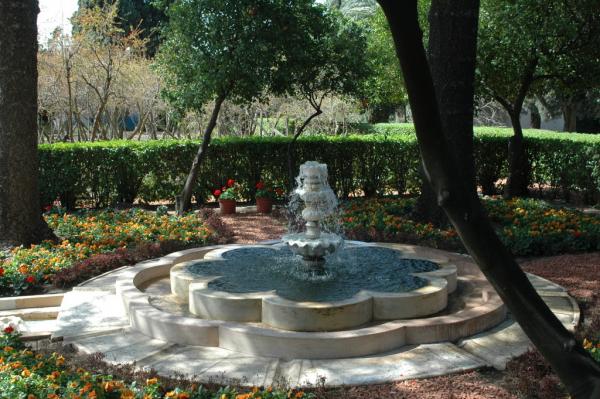Location
Windsor Bahá’ís and friends of the Faith "rejoice with exceeding gladness" and celebrate the 'Most Great Festival' which will start April 21st in the afternoon. The first, ninth and twelth days have special signficance and are observed by abstaining from work and school and hosting devotional gatherings.
The word “Ridván” means “Paradise” in English. For twelve days from April 21 to May 2, 1863, Bahá’u’lláh resided in a garden of Baghdad that he dubbed “the Garden of Ridván.” There he publicly proclaimed his mission as God’s messenger for this age. At the time of his proclamation, Bahá’u’lláh was an exile in Baghdad, banished from his native Persia because of his teachings.
The Festival of Ridván is celebrated by Bahá’ís throughout the world with great joy and fellowship. Bahá’u’lláh wrote of the garden, “This is the Paradise, the rustling of whose leaves proclaims: ‘O ye that inhabit the heavens and the earth! There hath appeared what hath never previously appeared. He Who, from everlasting, had concealed His face from the sight of creation is now come’.”
The Bahá’í Faith teaches the oneness of God, the oneness of religion, and the oneness of mankind. Bahá’ís believe that in every age, God sends a divine educator, a manifestation of God, whose purpose is to restate and renew the eternal truths of religion and to address the specific needs of the age in which he appears. They believe that Bahá’u’lláh is the manifestation of God for this age in mankind’s evolution. This “spiritual springtime” as it is called in the Bahá’í writings, is when the efforts of all the previous messengers of God, such as Abraham, Moses, Buddha, Krishna, Zoroaster, Christ, Muhammad and Bahá’u’lláh’s prophet-herald, the Báb, will blossom and bear their fruit. Thus, the occurrence of the Festival of Ridván at the height of the spring season bears a special significance for Bahá’ís.
In his writings, Bahá’u’lláh promulgates the equality of men and women, the essential harmony of science and religion, the independent investigation of truth, economic justice based upon spiritual principles, the urgent need for the elimination of all forms of prejudice, universal compulsory education, and international auxiliary language and a world government for the maintenance of a lasting peace.
Bahá’u’lláh’s exile to Baghdad was the first of several banishments that occurred until his death in 1892. Dismayed by their inability to curb Bahá’u’lláh’s continuing influence and growing Faith, Persian religious and government leaders convinced the officials of the Ottoman Empire to banish Bahá’u’lláh to Adrianople, Constantinople, and finally, to the horrendous prison city of Akka in the Holy Land. Bahá’u’lláh suffered forty years of torture, imprisonment and exile.
The World Center of the Bahá’í Faith is on Mount Carmel in Haifa, Israel.
